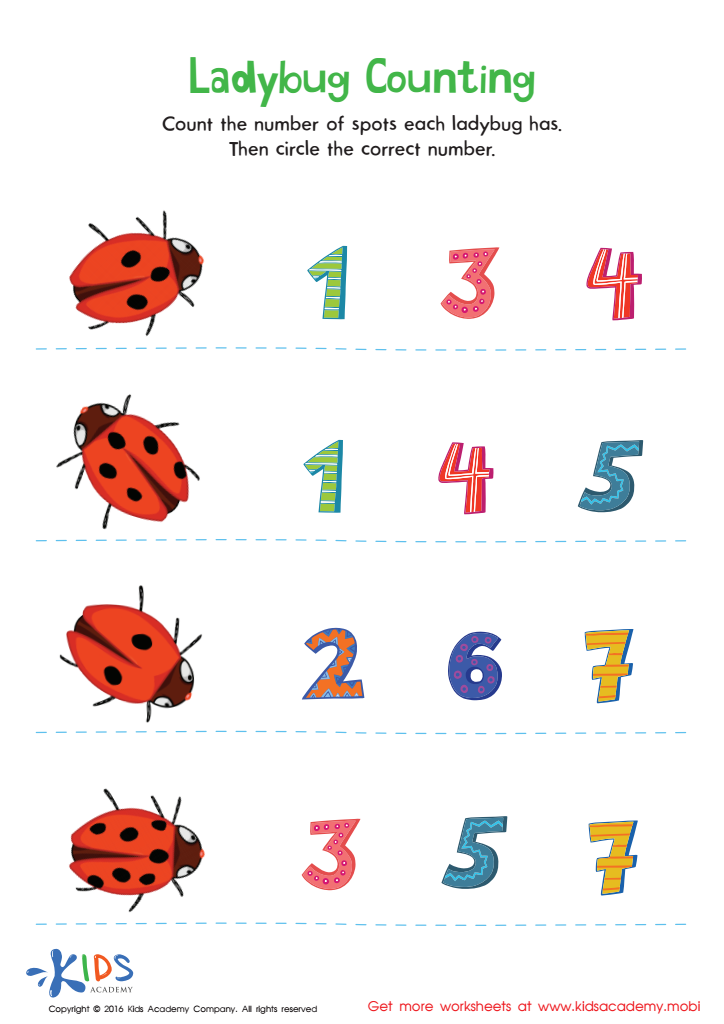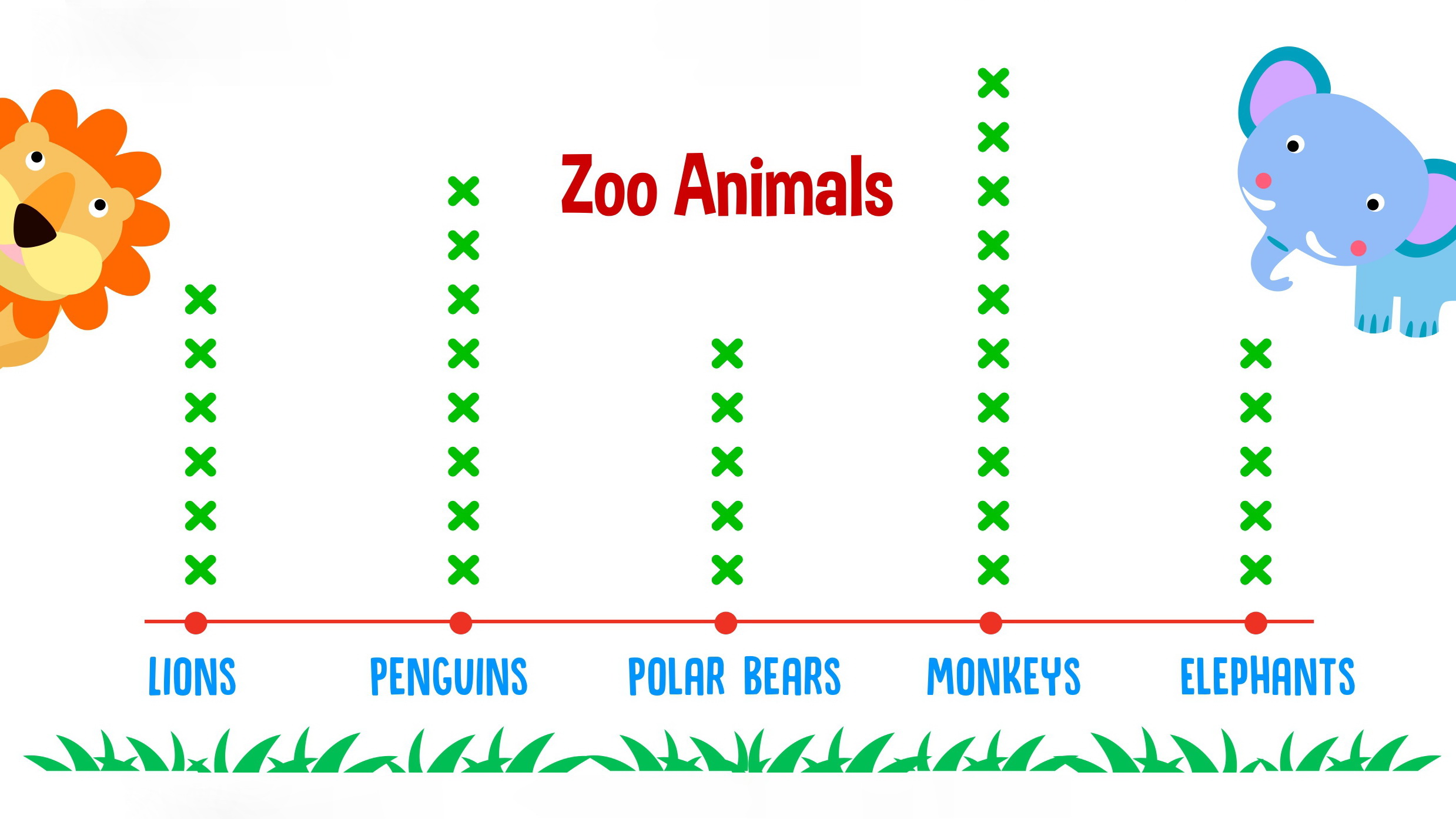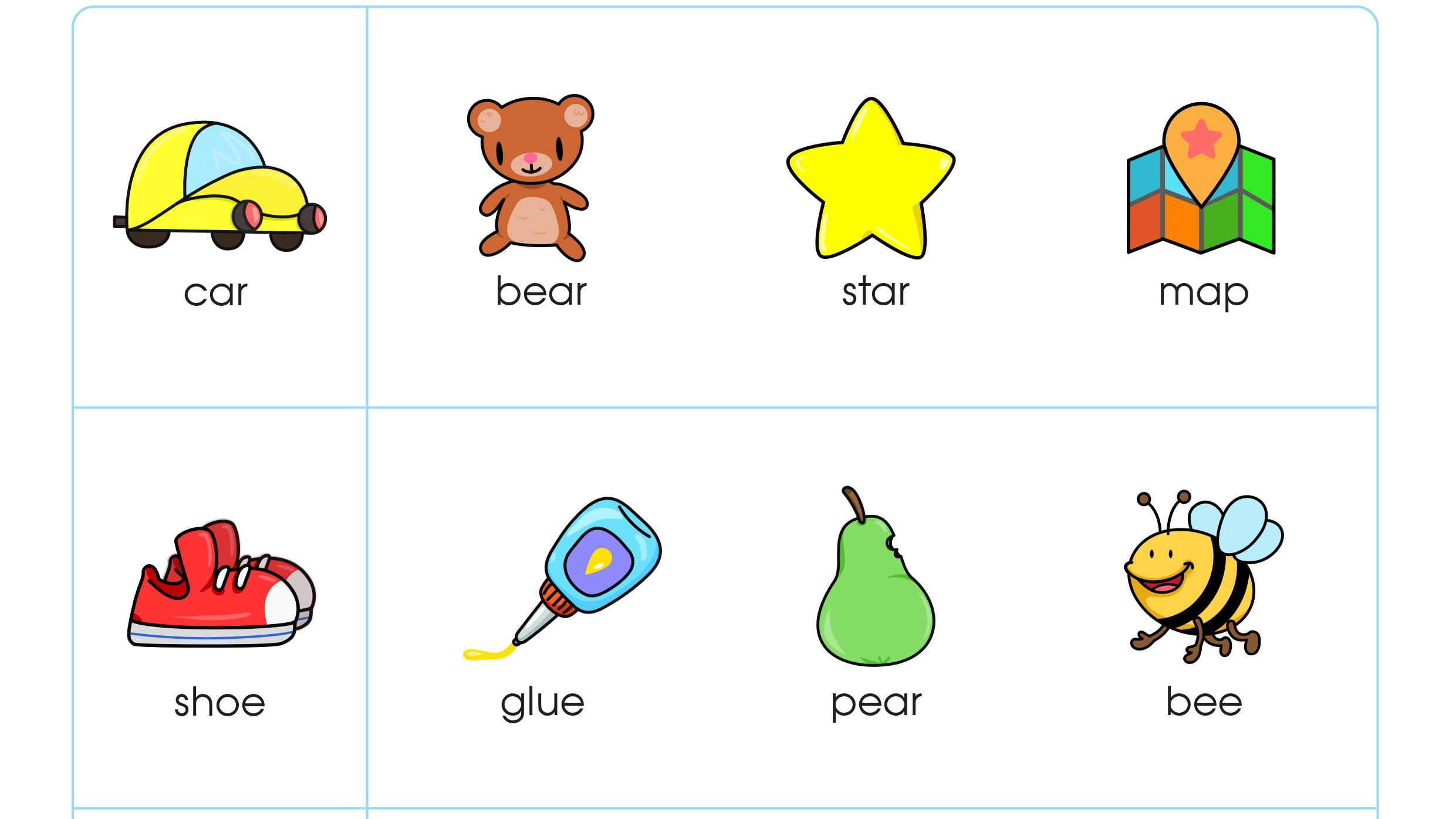Counting practice Extra Challenge Worksheets for 6-Year-Olds
20 filtered results
-
From - To
Enhance your child's counting skills with our Counting Practice Extra Challenge Worksheets for 6-Year-Olds! Designed to make learning fun, these engaging worksheets provide numerous practice opportunities to develop and reinforce counting abilities. Children will explore number recognition, matching, and simple arithmetic through a range of colorful and stimulating activities. Each worksheet challenges young learners to think critically, promoting their math skills in a playful way. Perfect for at-home learning or supplementary practice in the classroom, these worksheets cater to various learning styles, ensuring a comprehensive grasp of foundational math concepts. Spark your child's curiosity and confidence in math today!
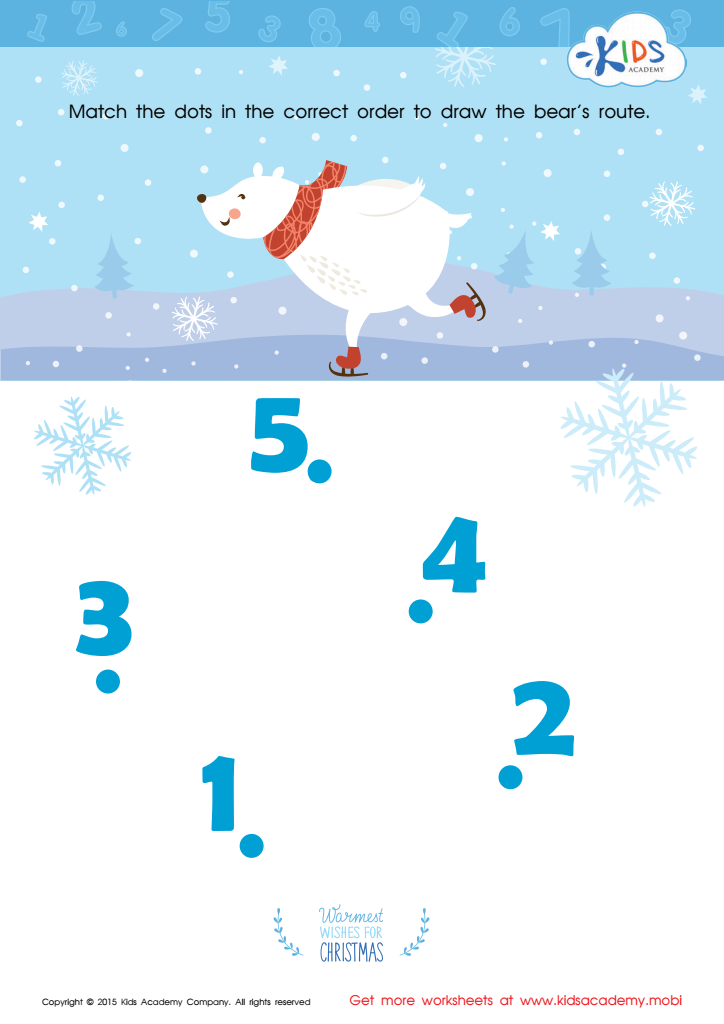

Drawing the Bear's Route by Number Worksheet
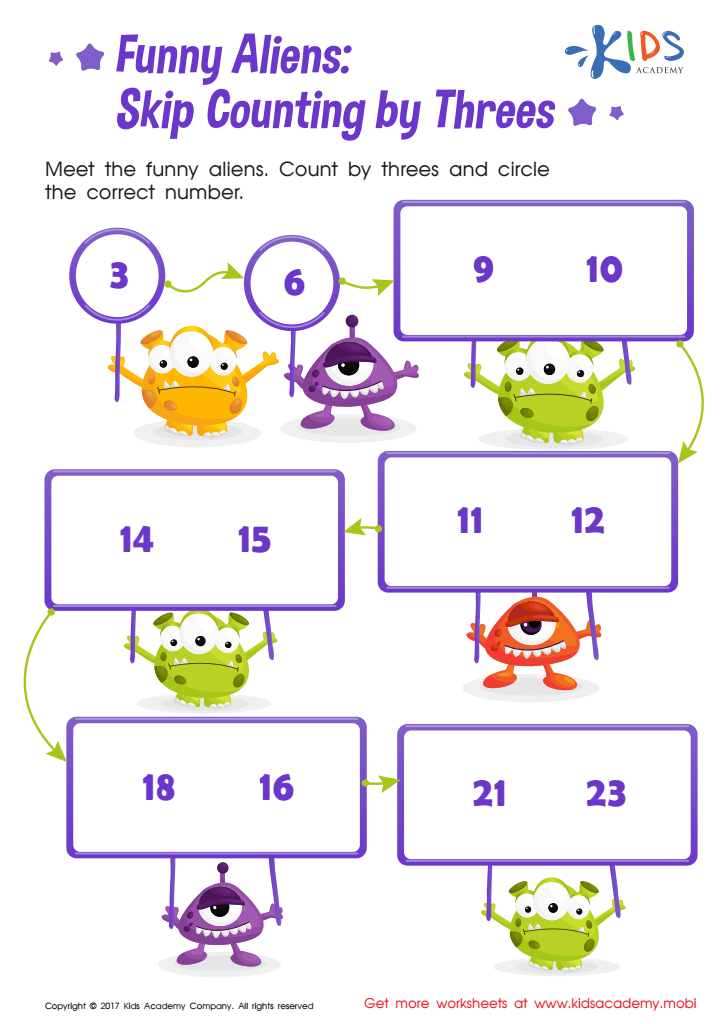

Skip Counting by 3s: Funny Aliens Printable
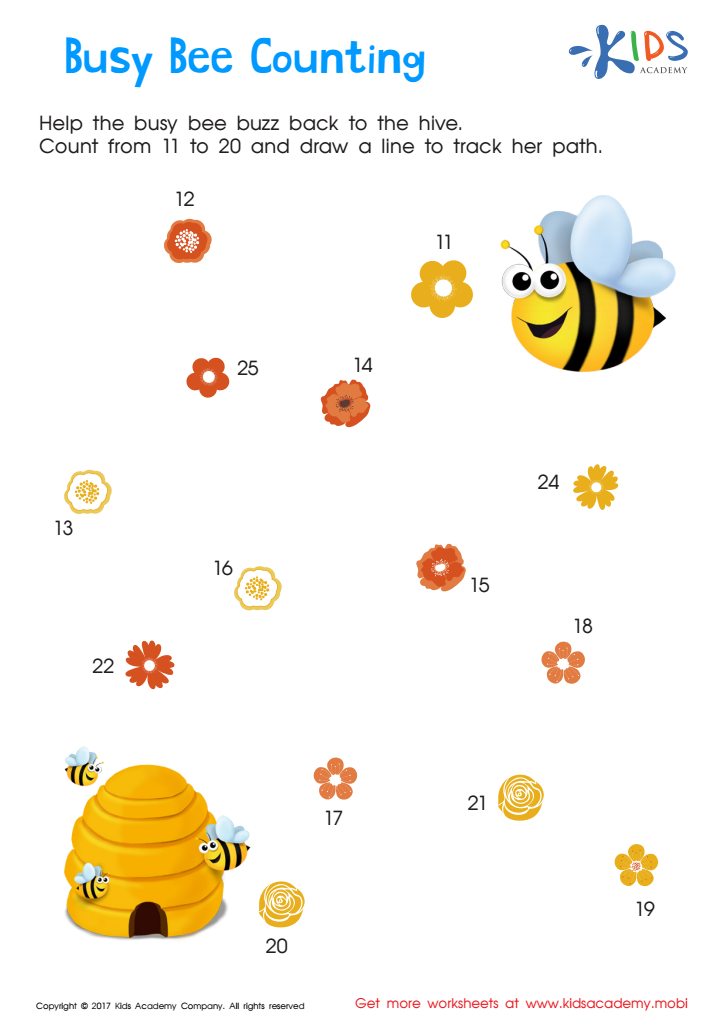

Ordering 11–20: Busy Bee Counting Worksheet


Baa Baa Black Sheep Printable
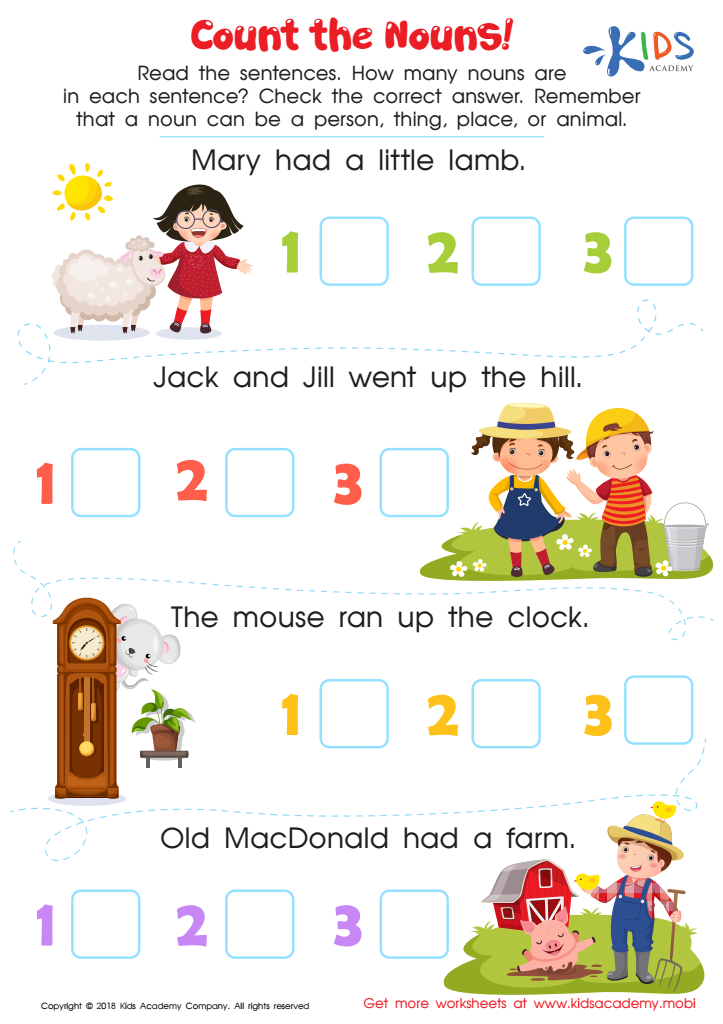

Count the Nouns Worksheet
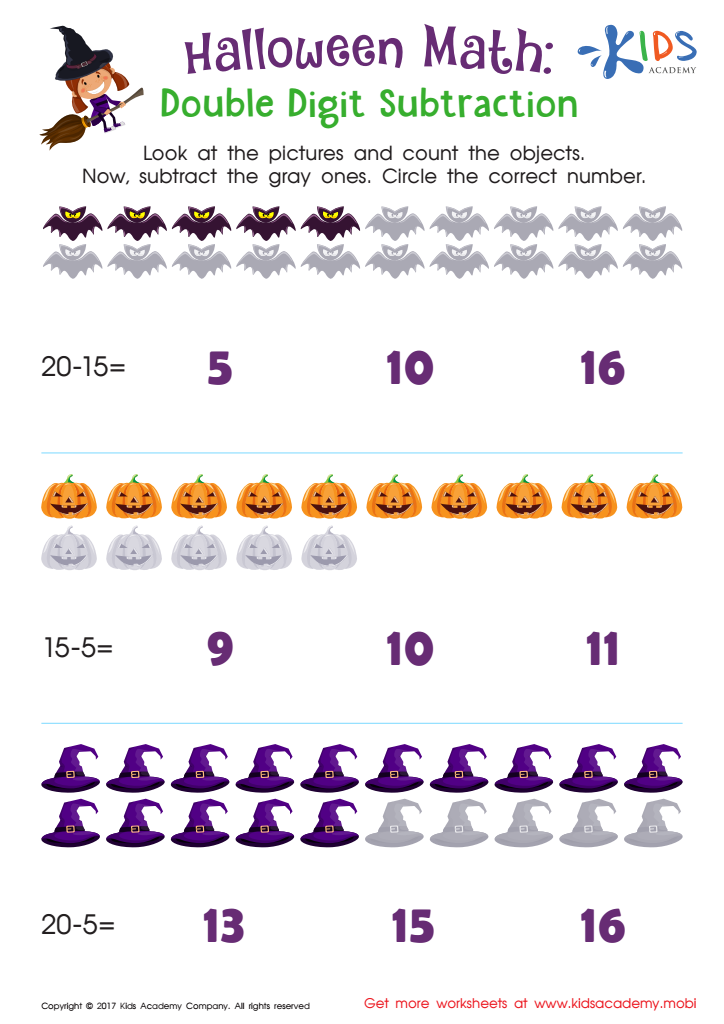

Halloween Math Subtraction Worksheet
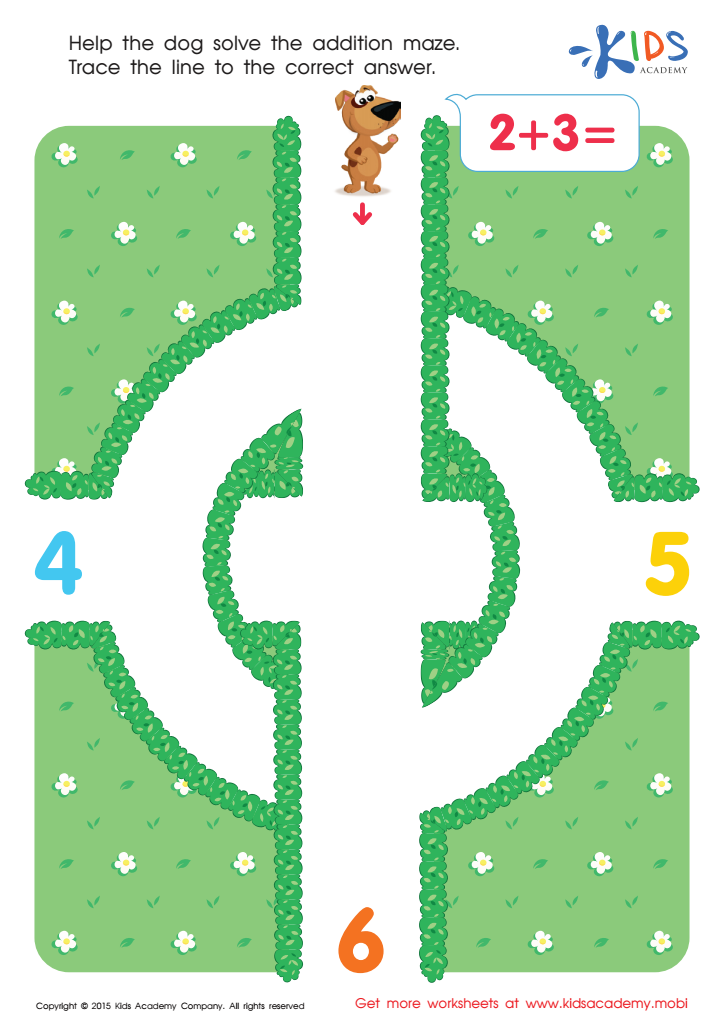

Two And Three Addition Worksheet
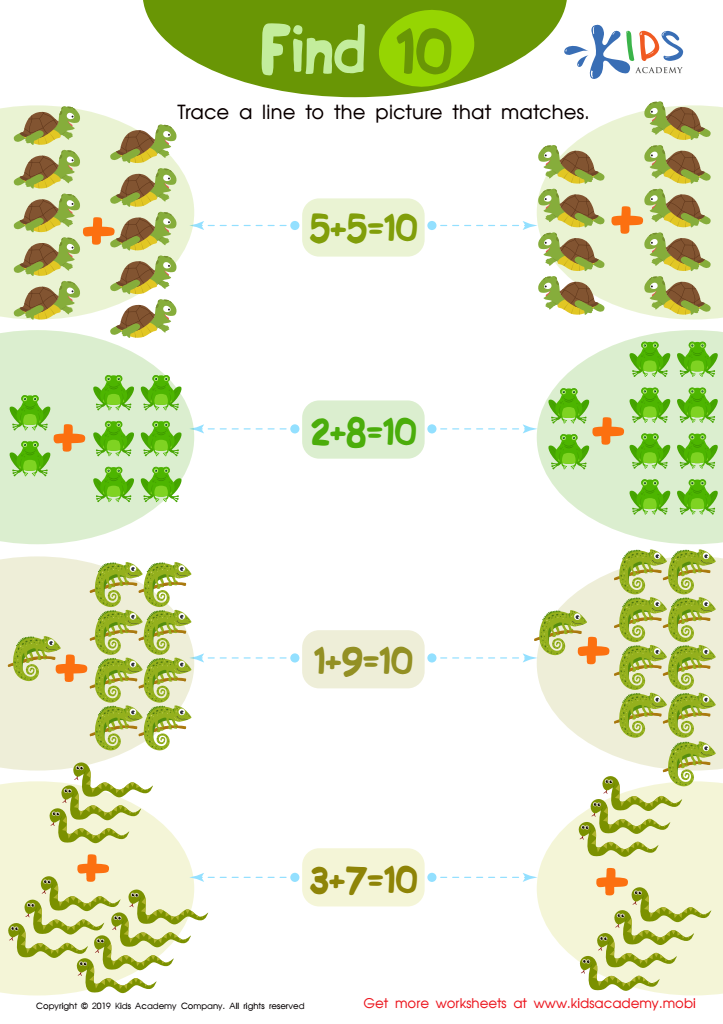

Find 10 Worksheet
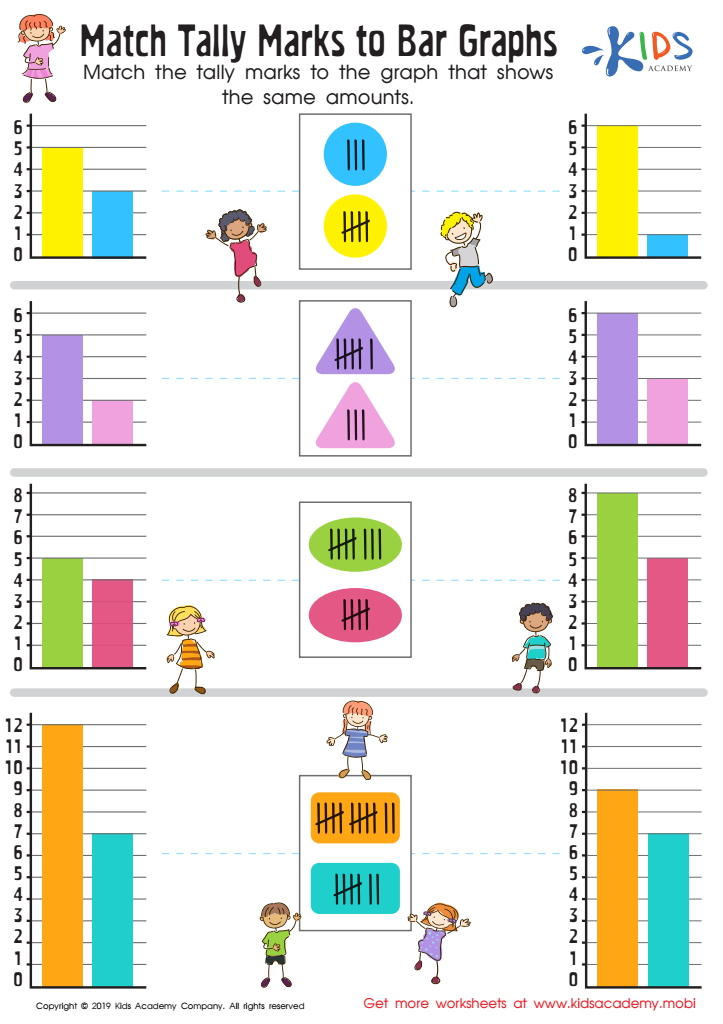

Match Tally Marks to Bar Graphs Worksheet
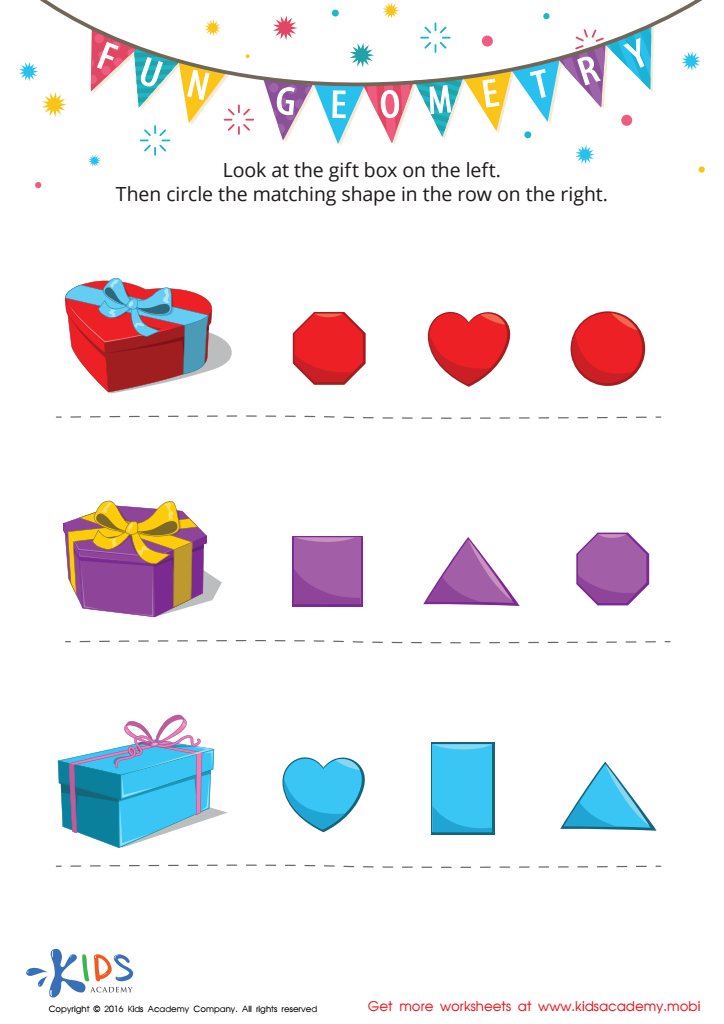

Fun Geometry Worksheet
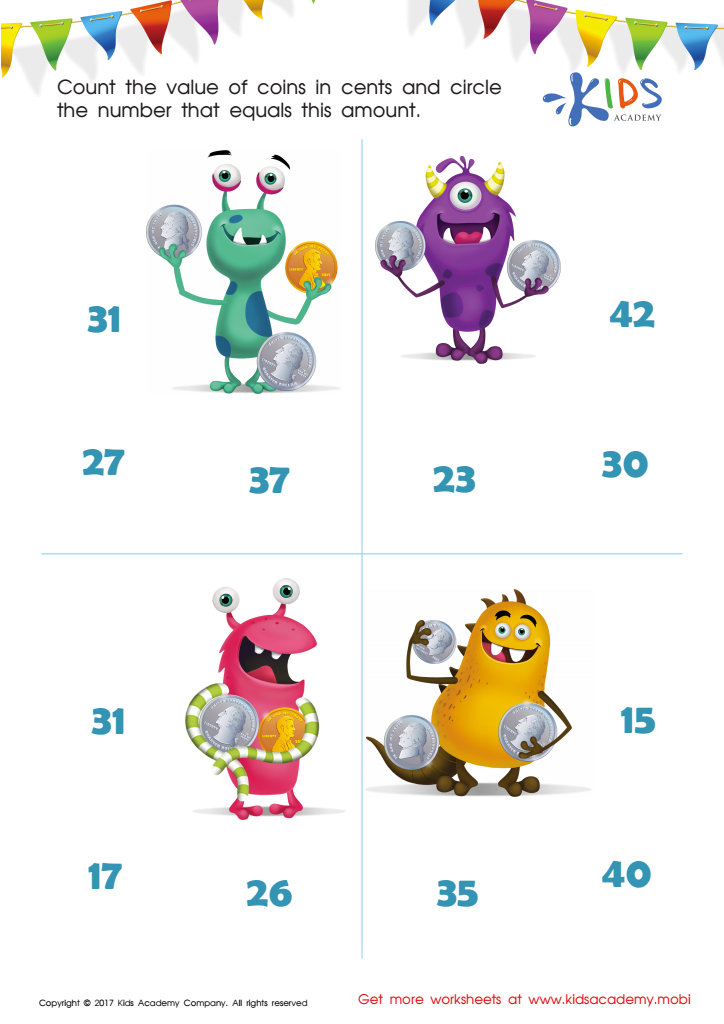

How Many Coins Money Worksheet
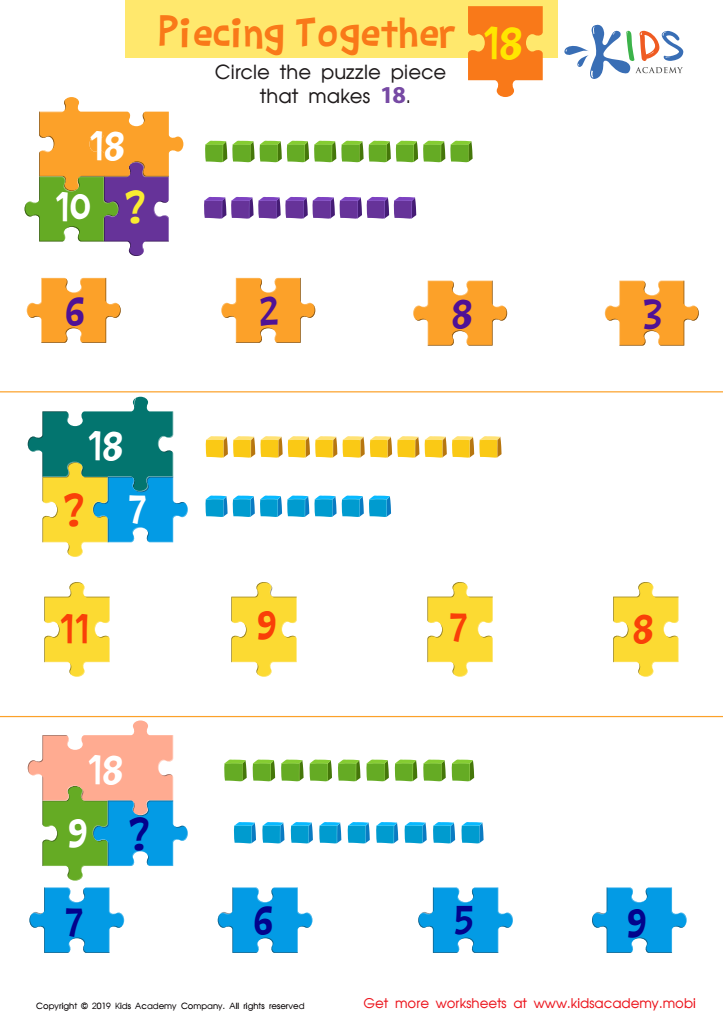

Piecing Together 18 Worksheet
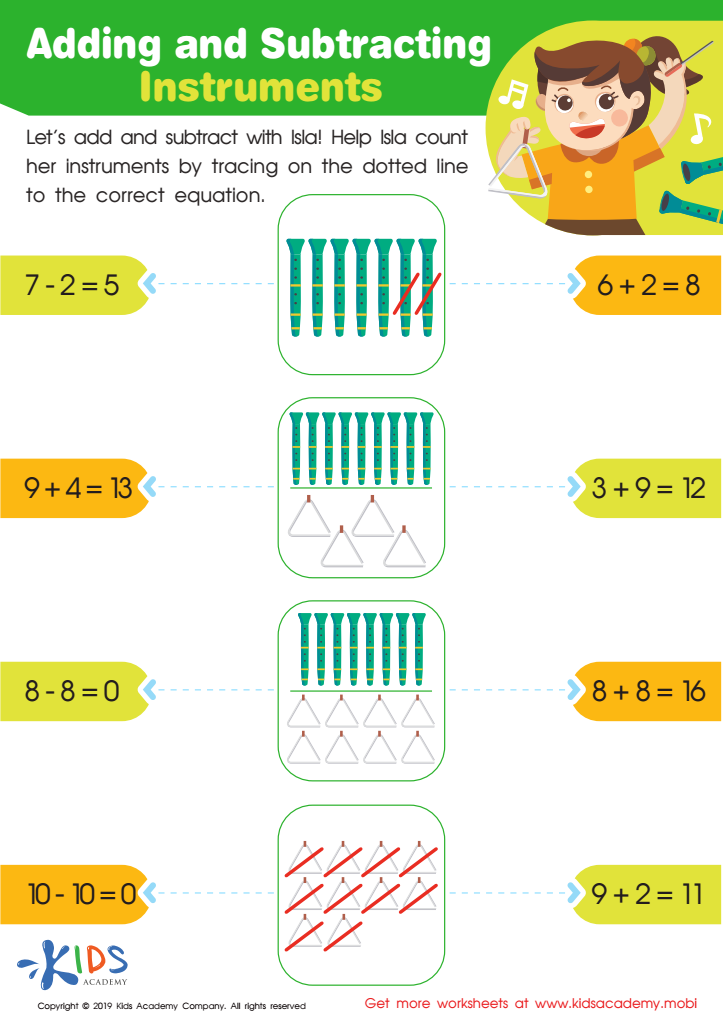

Adding and Subtracting: Instruments Worksheet
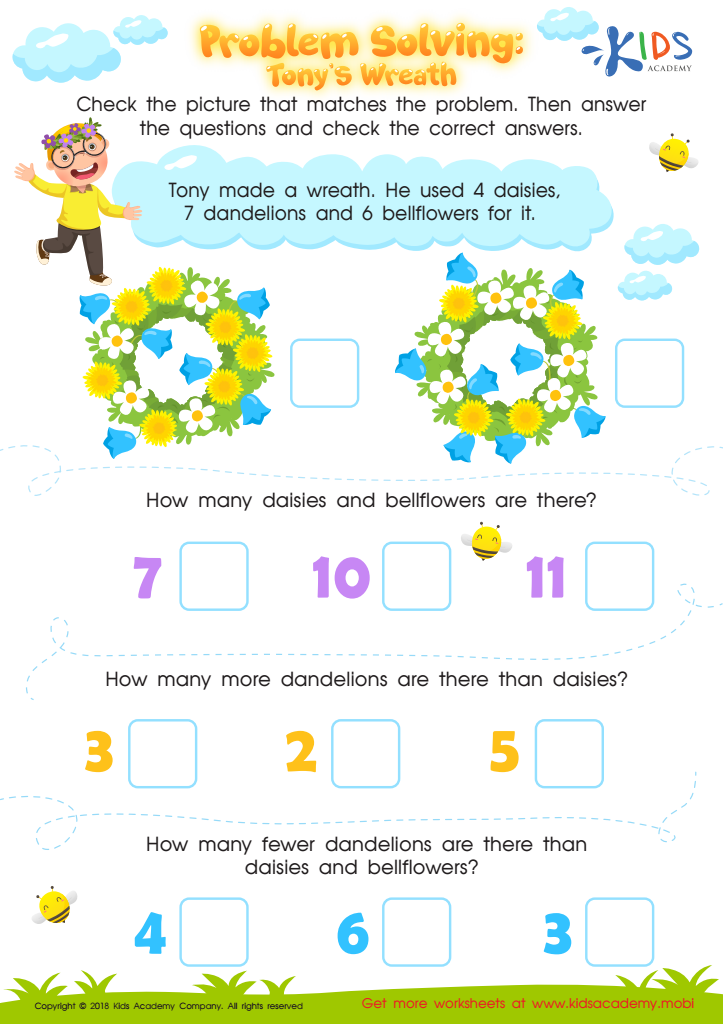

Problem Solving: Tony's Wreath Worksheet
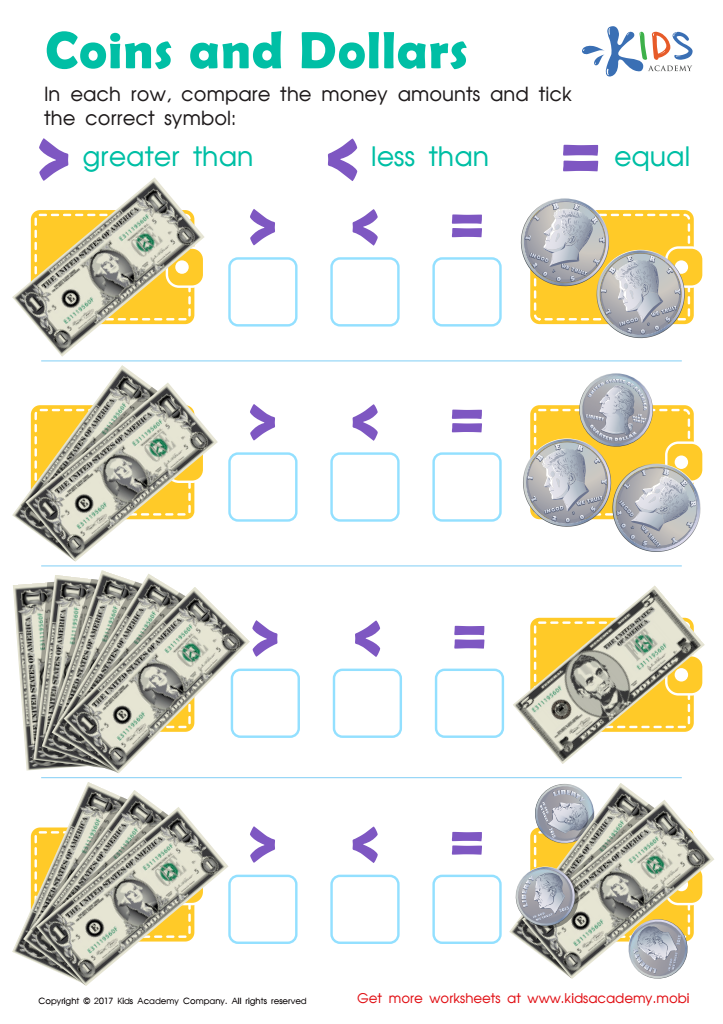

Money: Coins Dollars Printable
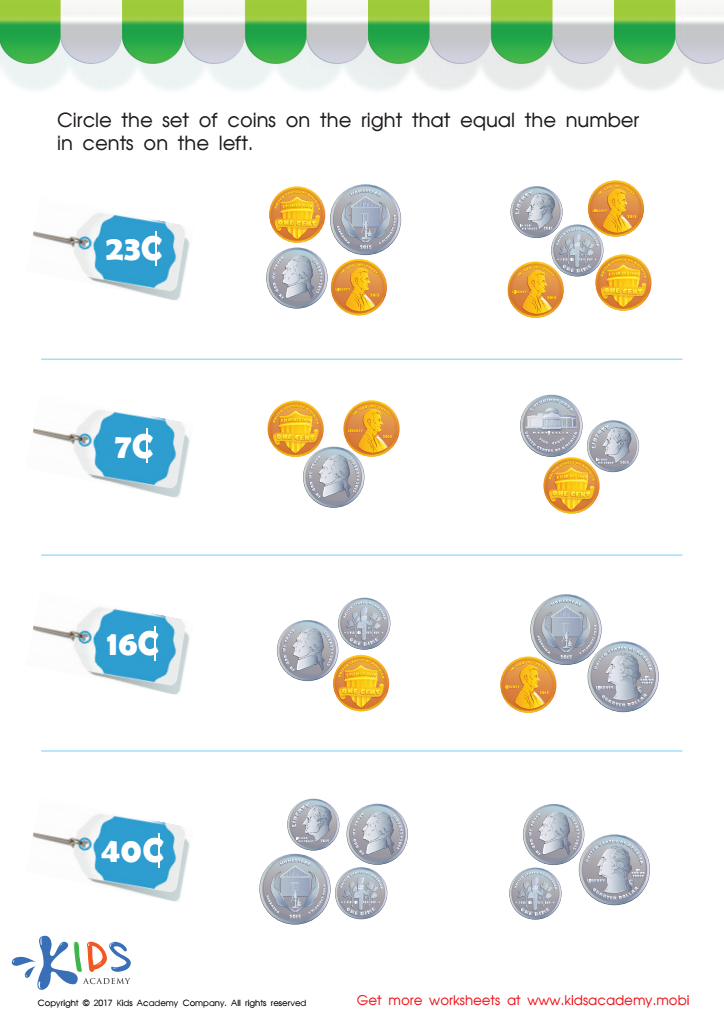

Picking the Coins You Need Money Worksheet
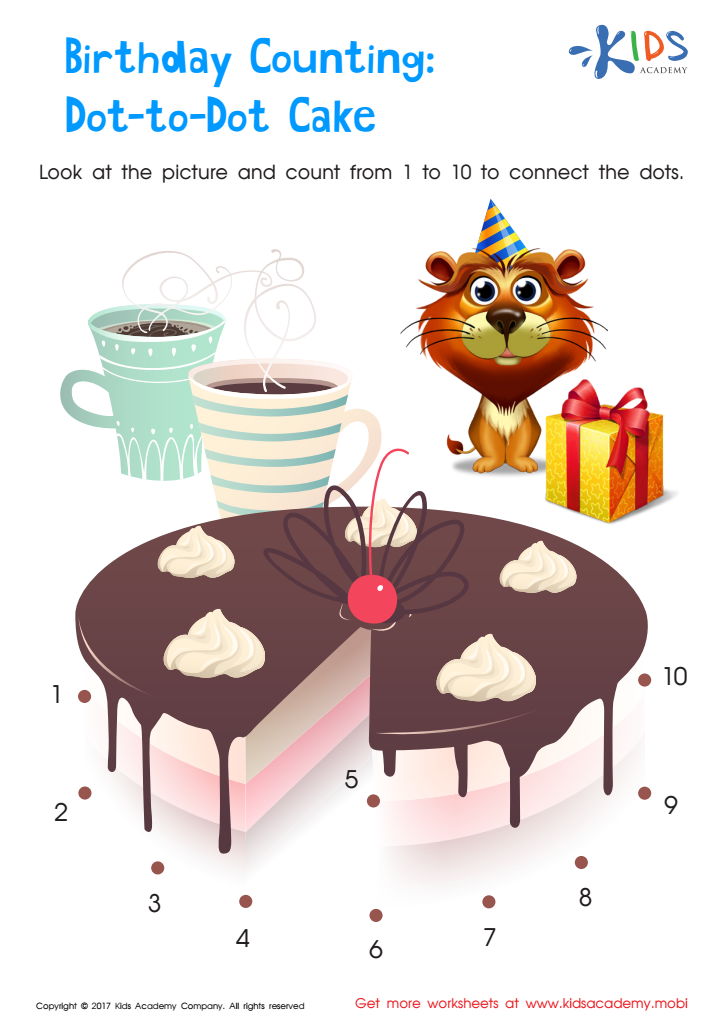

Birthday Counting Connect Dots Worksheet
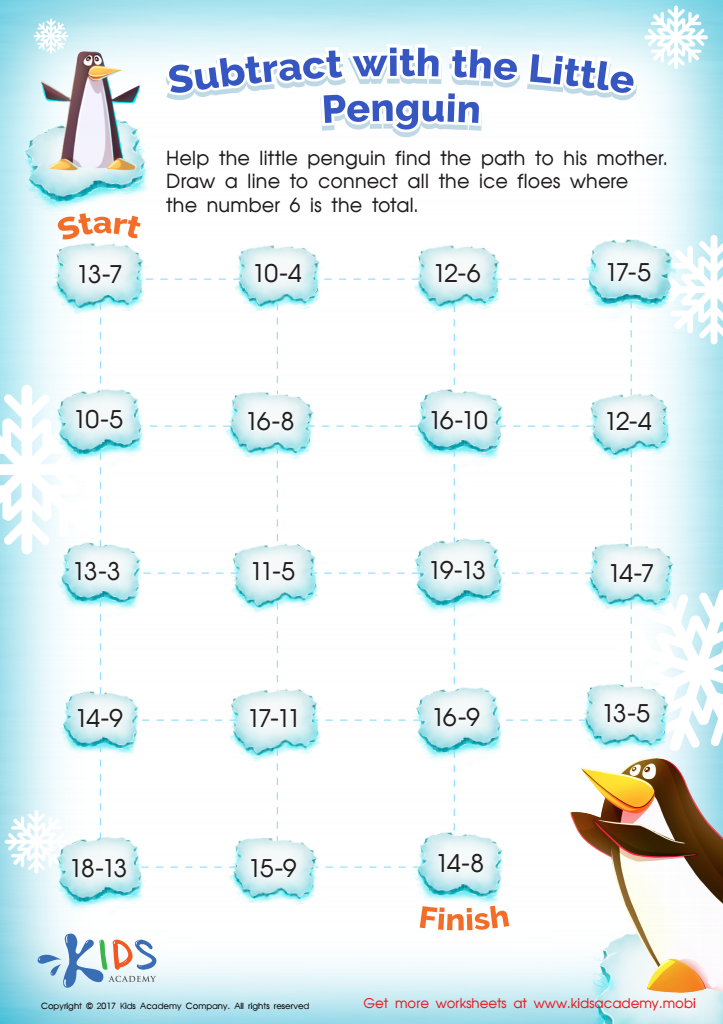

Subtract With The Little Penguin Substraction Worksheet
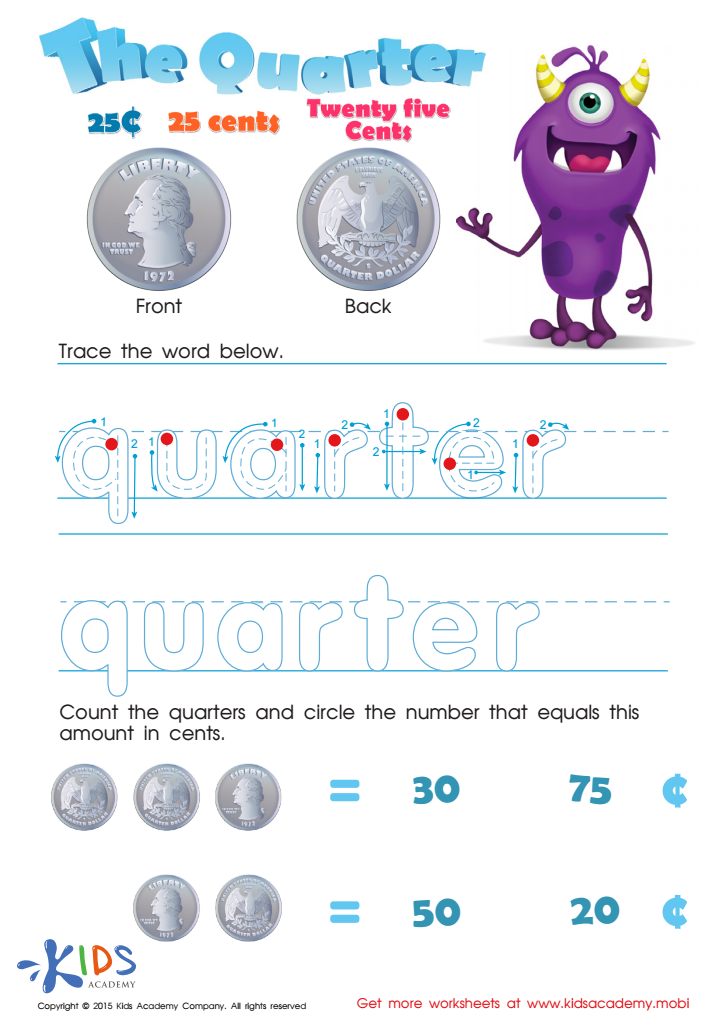

Twenty Five Cents or the Quarter Money Worksheet
Counting practice is fundamental for 6-year-olds as it lays the groundwork for future mathematical skills. Engaging children in extra counting challenges not only reinforces their understanding of numbers but also boosts their confidence in problem-solving and critical thinking. At this age, children are developing their number sense, which allows them to understand quantity, value, and the relationship between numbers.
Parents and teachers should emphasize counting activities that integrate play and exploration. These challenges can include counting objects, skipping numbers, or even counting backward, making the process fun and engaging. Such activities enhance cognitive development and improve concentration and memory skills—key indicators of academic success.
Additionally, counting practice fosters psychomotor skills as children often count physical objects. It encourages interaction with peers or parents, strengthening social skills and communication. As students become proficient at counting, they pave the way for more complex concepts such as addition, subtraction, and eventually higher mathematics.
By prioritizing counting practice, caregivers invest in a child's foundational numeracy skills, promoting a lifelong love for learning. Skills developed during these formative years are crucial for future academic experiences, making this an essential focus area for parents and educators alike.
 Assign to My Students
Assign to My Students
